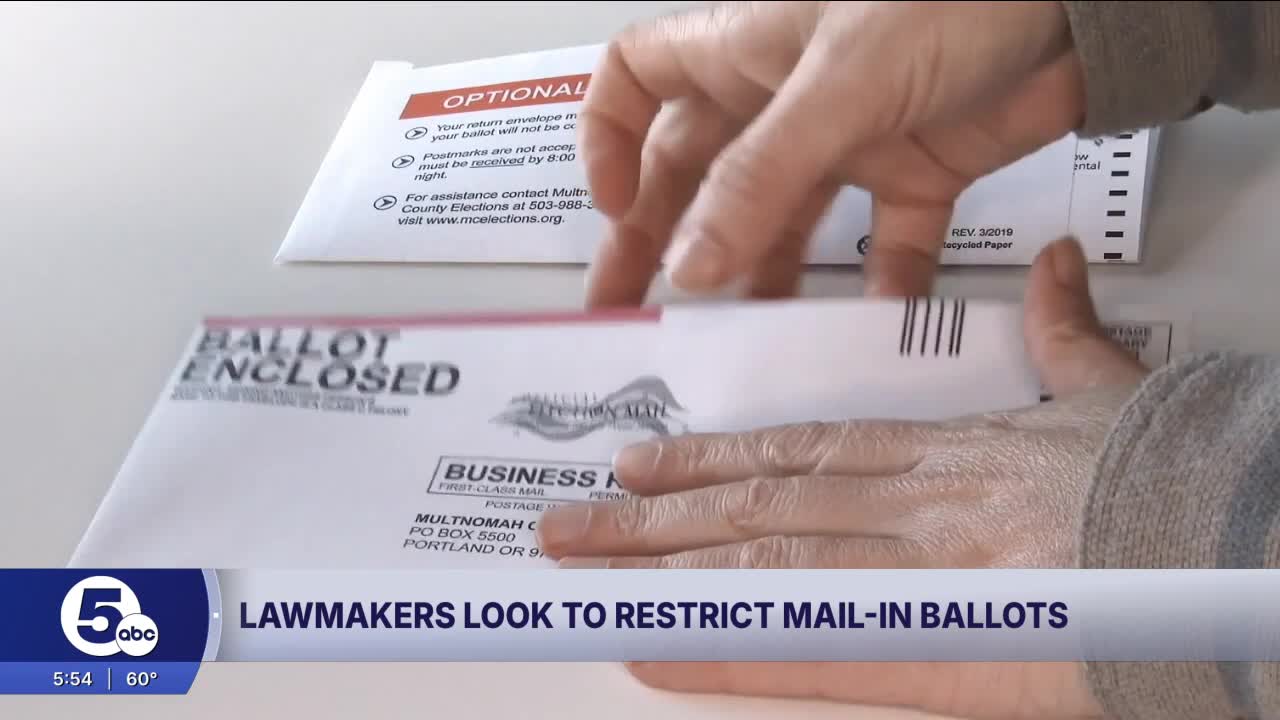COLUMBUS, Ohio — Ohio Republican lawmakers have introduced legislation that would restrict the mail-in deadline, requiring all absentee ballots to be received by elections officials by the time that polls close. Some veterans raised concerns that this could prevent military and overseas ballots from being counted.
"It's a feeling that when your country calls you, you go," Army veteran Adam Miller said.
Joining the military is one of the most patriotic things an Ohioan can do, he said, but so is participating in the democratic process.
"Being able to cast your vote is one of the fundamental freedoms that patriots fought for," he said.
When you are deployed overseas or in another country, the only way to vote is by mail — which Miller did when he was fighting in the Middle East.
"It takes three or four weeks to wind its way back to the United States," Miller, a former Democratic state lawmaker, said to me. "Morgan, voting is your lifeline when you're overseas."
Right now, ballots will still be counted as long as they are returned within four days of the election, as long as they are postmarked before Election Day.
But state lawmakers want to change that.
"We want to make sure that something as precious as your vote is being done accurately and that our voters know we're doing things correctly," state Sen. Theresa Gavarone (R-Bowling Green) said.
Gavarone and state Sen. Andrew Brenner (R-Delaware) introduced Senate Bill 293, requiring all ballots to be returned by the close of polls on election night. Gavarone said that sometimes, ballots are received without being postmarked, so they may not be counted.
"Your ballot has to be received on election day, on or before, so that there won't be any ambiguity," Gavarone said.
Brenner said that he had been working with Secretary of State Frank LaRose and his team on the bill.
“The legislature has the authority to decide the time, place or manner of an election. Our office is reviewing the legislation and will work with the legislature throughout the process. Ultimately, this is not a new idea, and Ohio would be joining a majority of other states,” LaRose's spokesperson Ben Kindel said.
Miller and other veterans we spoke to argued that this could disenfranchise anyone voting by mail, especially military personnel. According to state data, about 17,000 of the more than one million Ohioans who voted by mail in 2024’s presidential election were military. Overall, nearly 10,000 ballots came in during the four days after the election.
For many local and some congressional races, that could sway the result.
"It's often down to half a dozen votes, single-digit votes," Miller said about local races.
Brenner explained that thanks to federal law, overseas military already get an extended timeline to vote, getting their ballots a few weeks before domestic early voting begins.
"They're given those extra couple of weeks," Brenner said. "I think it's more than fair for those military [voters] and it treats everybody's [ballot], at the end, the same way."
Miller said that this is another tactic to make it harder to vote.
In Cuyahoga County's November 2024 election, the Board of Elections reported nearly 590,000 ballots cast. About 230,000 were by mail. Of that, 113 were found invalid due to not having a postmark — 0.019% of the total vote. Saying every vote should count, Miller argued that restricting all mail-in voters due to less than a percentage of no postmarks isn't fair.
In 2023, a massive election overhaul bill changed the deadline from the seventh day after the election to the fourth.
"We owe it to those Ohioans who are serving, particularly those Ohioans who are working in harm's way on behalf of Uncle Sam, to know that their local vote all the way up the ballot is going to be counted," Miller said.
He added that the lawmakers, who aren't veterans, are misguided.
"It makes it almost a certainty that every service member's right to vote will be extinguished," he said.
The legislators want to get this into law before the 2026 election, Brenner said. The bill has its first hearing on Tuesday.
Some Republicans, with President Donald Trump leading the charge, argue that all mail-in voting should be banned. The president's argument is based on unsubstantiated claims of fraud.
RELATED: Trump wants to end mail-in voting. Here's what that means for you.
Follow WEWS statehouse reporter Morgan Trau on Twitter and Facebook.






